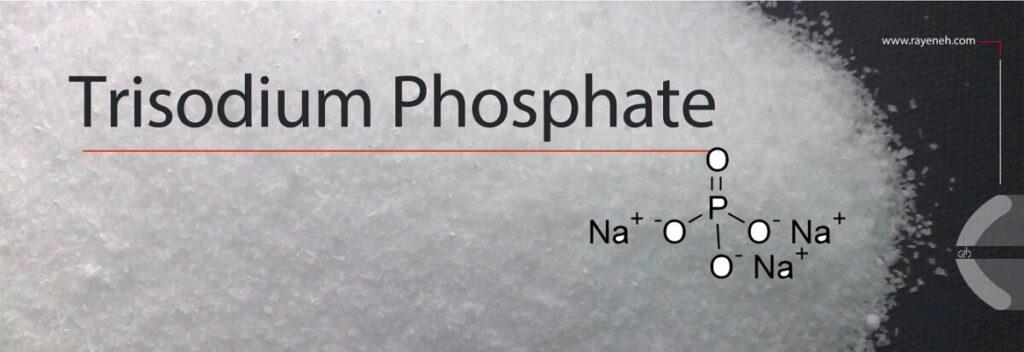
Trisodium phosphate is a white, odorless, alkaline chemical that is highly soluble in water, resulting in an alkaline solution with a pH of about 12. This chemical is available in two types of trisodium phosphate, industrial and edible.
The production of trisodium phosphate results from the combination of phosphoric acid with sodium hydroxide and sodium carbonate. The resulting compound creates disodium phosphate and reacts with carbon dioxide.
After that, it enters the filtration process, and at this stage, sodium hydroxide is added to the filter, which causes the production of trisodium phosphate, and the resulting solution is filtered again.
After that, this solution is dried in suitable conditions and trisodium phosphate crystals are formed, which are classified according to their particle size.
| Properties | Value |
|---|---|
| Molecular mass | 163.94 g/mol |
| Melting Point | 1583 °C ( anhydrous) |
| Appearance | white powder |
Application
- Food industry
- Pharmaceutical industry
- Detergents
- Water and sewage treatment
- Anti-humidity
- Ceramic and tiling industries
- Corrosion inhibitor
- Paper production industry
- Textile and dyeing industry
- Petrochemical industries
- Power plants
Packing
This chemical can be supplied in 25 kg bags.
Chemical Formula
- Na3PO4
Other names
- sodium phosphate
- water softener
- sugar refiner
- pentasodium triphosphate
- trisodium phosphate
- TSP
